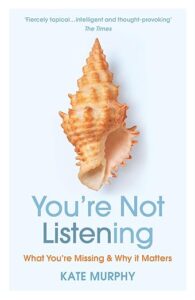Why Being a Silver Medalist in Job Interviews Could Be Your Winning Strategy
Introduction
Feeling disheartened after missing out on a job you were almost certain you’d get? You’re not alone. In the competitive world of job hunting, being the runner-up—or what’s known in the industry as a “Silver Medalist”—isn’t necessarily a bad thing. It could be your secret weapon for future success. In this blog post, we’ll delve into the concept of ‘Why Being a Silver Medalist in Job Interviews Could Be Your Winning Strategy’, and a game-changer in your career journey.
What Does It Mean to Be a Silver Medalist?
Imagine acing your interviews, discussing salary expectations, and even discussing start dates, only to receive that dreaded call: “We’ve chosen another candidate.” While it’s a tough pill, this doesn’t mean you misread the signs. You may actually be a Silver Medalist, a term used to describe highly rated candidates who narrowly missed the top spot.
The Silver Lining: Opportunities Await
Being a Silver Medalist can open doors within the same company. Here are some scenarios:
- Shared Profile: Recruiters may share your profile with other departments.
- Contract Roles: You could be offered a temporary position until something permanent opens up.
- Location & Grade: Opportunities may arise in different locations or job grades.
- Future Opportunities: You might be contacted later when new positions become available.
The Unexpected Upside
Being a Silver Medalist can sometimes lead to even better opportunities than you initially applied for. You could be kept in ‘reserve’ for future roles, and you might even receive a call offering you a more senior position.
Signs the Opportunity Isn’t Over
- The job listing is immediately taken down after your rejection.
- The hiring manager connects with you on LinkedIn.
- You receive a personalized call outlining your interview strengths.
Your Game Plan for Success
- Ask Open-Ended Questions: Encourage more thoughtful responses during interviews. This shows you’re a good listener and helps you run better meetings and drive positive collaboration.
- Stay Connected: Keep in touch with the recruiter and hiring manager.
- Feedback: Always ask for feedback to identify areas for improvement.
Final Thoughts
Being a Silver Medalist is not a setback; it’s a setup for something even better. Keep your options open; your dream job might be a phone call away!
Further Reading
Book Recommendation: You’re Not Listening by Kate Murphy

Being a good listener can help you in various ways:
- Better Manager and Coworker: You’ll understand your team’s needs and concerns more deeply.
- Identify Areas of Improvement: Listening helps you get constructive feedback.
- Prepare for Interviews: This is especially useful for questions about feedback or dealing with difficult situations.
Read my post on ‘Active Listening’ for further tips.
Follow me on LinkedIn for inspiration on ATS Optimisation, Interview Prep and Key Resources.
Note: This post contains affiliate links (AF links) for recommended products.
